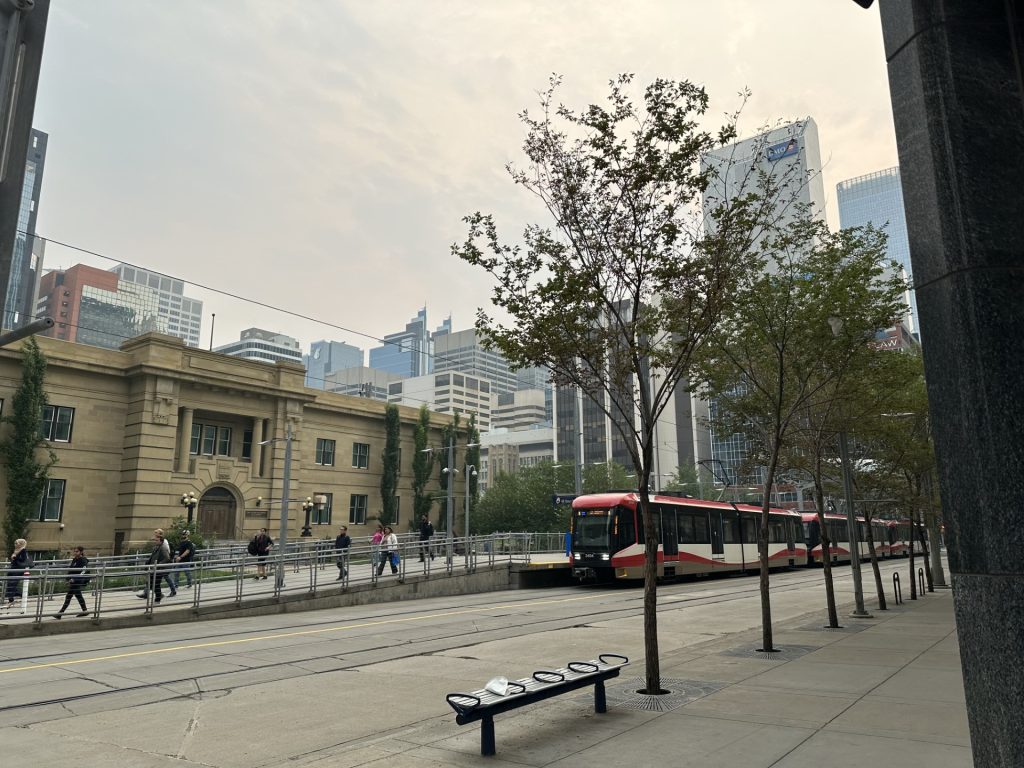Smoke is back, Calgary under special air quality statement: ECCC

Posted Jul 13, 2023 8:22 am.
Last Updated Jul 13, 2023 7:26 pm.
The smoke has once again returned to Calgary’s skyline, though conditions aren’t nearly as dire as they were earlier this summer.
Environment and Climate Change Canada (ECCC) has issued a special air quality statement for the city Thursday.
The agency says smoke is causing poor air quality and reduced visibility.
Air quality and reduced visibility due to wildfire smoke can fluctuate over distances and change considerably from hour to hour, ECCC adds.
According to firesmoke.ca, several fires are currently burning in western Canada, including several in B.C. and northern Alberta.
People with lung disease (like asthma) or heart disease, older adults, children, pregnant people, and people who work outdoors are at higher risk of experiencing negative health effects caused by wildfire smoke, the ECCC says.
CityNews Meteorologist Michael Kuss says this is the most extensive smoke the city has seen in July, particularly since smoke blanketed Calgary with a red, sci-fi red hue in May.
WATCH: Wildfire smoke blankets Calgary
He adds winds coming from the north are contributing to the smoke, adding it may persist through Thursday and Friday.
“We’re expecting air quality to be poor to very poor in and out through that stretch — really a 48-hour stretch — before we get any improvement,” he explained.
“There are still dozens of wildfires burning in northern Alberta and hundreds in British Columbia. The Donnie Creek wildfire in British Columbia is now almost 600,000 hectares in size, and a lot of the smoke that’s getting into Calgary is coming from that forest fire.”
Kuss says the smoke will improve over the weekend, with winds heading to the west and southwest, but adds there might still be light smoke.
“We are going to see conditions improving, warming up and clearing out for both Saturday and Sunday,” he said.
Individuals are advised to stop outdoor activities and contact their healthcare provider if they or someone they know are experiencing shortness of breath, wheezing (including asthma attacks), severe coughing, asthma, dizziness, or chest pains.
Environment Canada also recommends relocating inside to a place with cool, clean air when possible.
Those spending time outdoors should consider wearing a well-fitted respirator-type mask that doesn’t allow air to pass through small openings between the mask and the face, it adds.
-With files from Shilpa Downton








